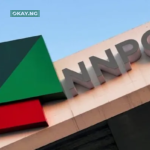The Nigerian National Petroleum Company Limited (NNPCL) has recently announced a significant adjustment to the price of Premium Motor Spirit (PMS), commonly known as petrol, across the country.
Contents
As Nigerians grapple with the economic implications of this price hike, here’s a comprehensive update on the situation.
What is the New Fuel Price?
- New Price: The price of petrol has been increased from ₦568 per litre to ₦855 per litre.
- Effective Date: This new pricing has already been implemented across all NNPC filling stations, particularly in Lagos, and is expected to be rolled out nationwide shortly.
Why Did NNPC Increase the Fuel Price?
The NNPC’s decision to raise the price of petrol is primarily driven by several key factors:
- Global Oil Prices: The global increase in crude oil prices has had a direct impact on the cost of fuel imports in Nigeria, compelling NNPC to adjust domestic prices accordingly.
- Subsidy Removal: The Nigerian government’s recent stance on reducing or removing fuel subsidies has left the NNPC with no choice but to reflect the true cost of fuel in the market.
- Exchange Rate Fluctuations: The weakening of the naira against the dollar has further exacerbated the cost of fuel imports, leading to this significant price adjustment.
How Does the New Price Affect Nigerians?
Economic Impact
- Inflation: The immediate consequence of the price hike is a likely increase in inflation rates. Higher fuel prices will drive up the cost of transportation, which in turn will affect the prices of goods and services.
- Cost of Living: For the average Nigerian, the cost of living is expected to rise as household budgets will be strained by the increased expenses on transportation and goods.











